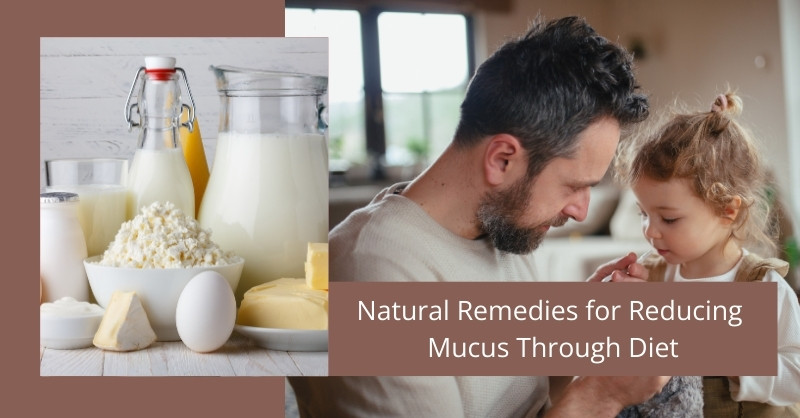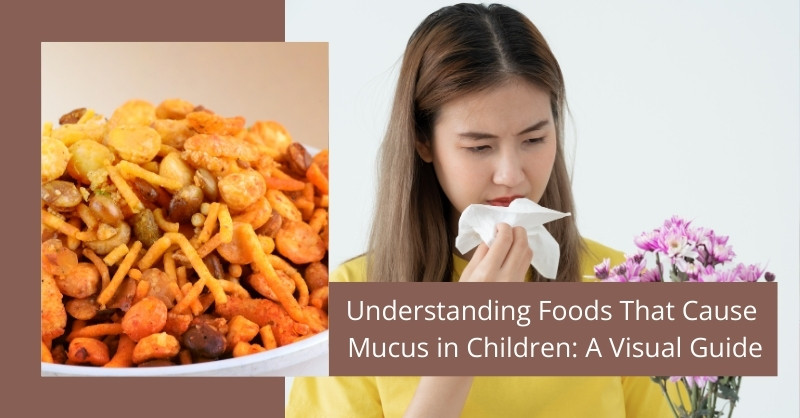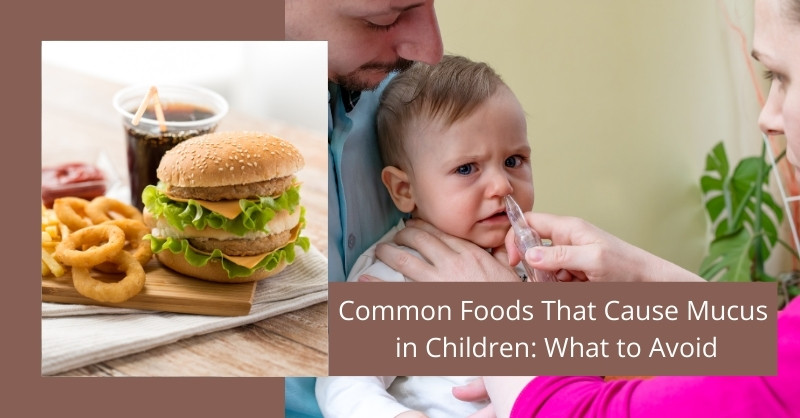As parents, we always strive to provide the best care and nutrition for our children. However, some foods can unexpectedly contribute to health issues, such as increased mucus production. Understanding which foods to avoid and how to manage diet effectively can help your child stay comfortable and healthy. This guide explores the topic of “foods that cause mucus in children” and offers practical advice for parents.
Understanding Foods That Cause Mucus in Children
Mucus is a natural substance produced by the body to protect and moisturize tissues. However, excessive mucus can lead to discomfort, congestion, and other respiratory issues. Some foods are known to be mucus-producing, particularly in children with sensitive systems. These include dairy products, processed foods, and certain sweeteners.
How Dairy Products Affect Mucus in Children
Dairy products like milk, cheese, and yogurt are among the most common “mucus-inducing foods.” These can thicken mucus and contribute to congestion, making it harder for children to breathe comfortably, especially if they have a cold or sinus congestion.
Sugary and Processed Foods That Increase Mucus
Foods high in sugar and processed ingredients can also increase mucus production. These “foods that cause phlegm” often create an inflammatory response in the body, exacerbating symptoms like a runny nose or chest congestion.
Foods to Avoid with Sinus Congestion in Children
Children prone to sinus issues should avoid mucus-forming foods such as fried snacks, refined flours, and carbonated drinks. These items can worsen inflammation and lead to thicker mucus, making sinus congestion more severe.
Why Foods That Cause Mucus in Children Matter
Understanding “what foods cause mucus?” involves examining their effects on the body. Many foods that cause mucus in children trigger an immune or allergic response, leading to increased production as the body’s defense mechanism.
Examples of Mucus-Producing Foods
- Dairy Products: Milk, cheese, butter, and cream are notorious for thickening mucus.
- Processed Sugars: Candy, soft drinks, and baked goods can contribute to congestion.
- Gluten: Found in bread, pasta, and pastries, gluten can cause mucus buildup in sensitive children.
- Fried Foods: These can irritate the respiratory tract, leading to excess mucus.
Foods That Cause Congestion in Children
If your child frequently experiences mucus-related issues, it’s essential to identify “foods to avoid with phlegm.” Here’s a detailed breakdown of problematic foods:
High-Fat Foods That Thicken Mucus
Fried and greasy foods not only cause digestive issues but also lead to the production of thick, sticky mucus. Avoid serving these to children prone to congestion.
Artificial Additives and Mucus in Children
Preservatives and artificial sweeteners are “mucus-inducing foods” that can irritate the immune system and cause excessive mucus production. Stick to natural, wholesome ingredients when preparing meals.
Does Rice Contribute to Mucus in Children?
White rice, being highly processed, can sometimes lead to mild mucus buildup, especially in sensitive individuals. Switching to brown rice or other whole grains can help minimize this effect.
How to Reduce Mucus Naturally Through Diet?

Knowing “what foods to avoid with chest congestion” is only part of the solution. Encouraging a diet rich in anti-inflammatory and mucus-reducing foods is equally important.
Foods That Help Reduce Mucus in Children
- Citrus Fruits: Lemons, oranges, and grapefruits can help break down mucus.
- Pineapple: Contains bromelain, an enzyme that reduces inflammation and thins mucus.
- Ginger: Known for its anti-inflammatory properties, ginger is excellent for clearing mucus.
- Garlic: A natural expectorant that helps the body expel mucus.
6 Pediatrician-Approved Tips for Dealing with Mucus
What Drinks Help Remove Mucus in Children?
Hydration is key to managing mucus levels. Encourage your child to drink:
- Warm water with honey and lemon.
- Herbal teas like chamomile or peppermint.
- Fresh vegetable juices, particularly those containing celery or cucumber.
Which Foods to Avoid with Sinus and Chest Congestion?
When addressing “what foods to avoid with sinus congestion?” or “what foods to avoid with chest congestion?”, it’s crucial to eliminate items that trigger inflammation:
- Chocolate: Contains sugar and dairy, both of which can contribute to mucus.
- Ice Cream: A double offender with sugar and dairy.
- Alcoholic Foods: While rare for children, foods cooked with alcohol can irritate mucus membranes.
Practical Tips for Managing Foods That Cause Mucus in Children
- Monitor Your Child’s Diet: Keep a food diary to identify “what foods thicken mucus” for your child.
- Introduce Anti-Mucus Foods Gradually: Start with small servings of mucus-reducing foods like ginger and garlic to ensure your child enjoys them.
- Encourage Hydration: Proper hydration helps thin mucus, making it easier to expel.
- Limit Dairy and Sugary Treats: Reserve these for occasional indulgences rather than everyday staples.

FAQs About Foods That Cause Mucus in Children
Does Egg Contribute to Mucus in Children?
Eggs can sometimes act as a “mucus-producing food,” particularly if a child has a mild allergy or sensitivity.
What Foods Help Destroy Mucus?
Fruits like pineapple and papaya, along with vegetables like spinach and kale, are excellent at breaking down mucus.
How to Remove Mucus from the Stomach Naturally?
Encourage a diet rich in fiber and warm fluids. Ginger tea and light broths can help expel mucus from the stomach.
Does Rice Cause Mucus?
As discussed earlier, white rice can sometimes contribute to mucus but is generally less problematic than dairy or processed foods.
What Foods Should Be Avoided for Phlegm?
Focus on limiting dairy, sugary snacks, fried foods, and gluten-rich items to prevent excessive phlegm.
Final Thoughts on Foods That Cause Mucus in Children
Managing your child’s diet can significantly impact their comfort and respiratory health. By understanding “foods that cause mucus in children” and incorporating mucus-reducing foods into their meals, you can help them breathe easier and feel better. Always consult a pediatrician for persistent or severe symptoms to ensure the best care for your little one.
Read this Article: 👉Dyspnea and Cough in Children: A Comprehensive Guide
Read this Article: 👉Eating Habits Harm Your Health: Unhealthy Choices and Their Impact



